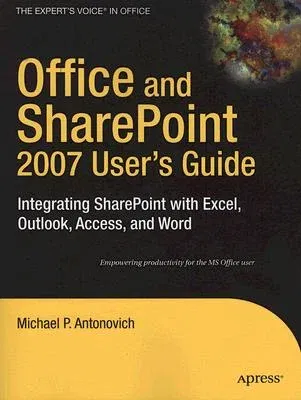Michael Antonovich
(Author)Office and Sharepoint 2007 User's Guide: Integrating Sharepoint with Excel, Outlook, Access and WordPaperback, 13 May 2008

Qty
1
Turbo
Ships in 2 - 3 days
In Stock
Free Delivery
Cash on Delivery
15 Days
Free Returns
Secure Checkout
Part of Series
Expert's Voice
Print Length
552 pages
Language
English
Publisher
Apress
Date Published
13 May 2008
ISBN-10
1590599845
ISBN-13
9781590599846
Description
Product Details
Author:
Book Format:
Paperback
Country of Origin:
US
Date Published:
13 May 2008
Dimensions:
23.39 x
17.7 x
2.84 cm
ISBN-10:
1590599845
ISBN-13:
9781590599846
Language:
English
Location:
Berkeley, CA
Pages:
552
Publisher:
Series:
Weight:
870.9 gm

